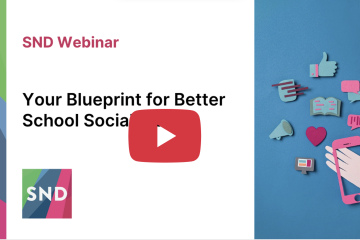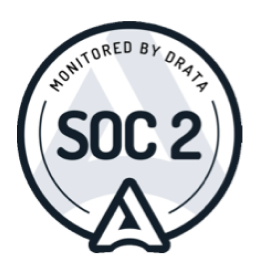Businesses, government agencies, and healthcare organizations are increasingly using social media to engage with their audiences. However, they must also follow a variety of regulations and ethical standards. In this post, we’ll examine the importance of social media compliance, the regulatory environment, ethical considerations, and best practices for different sectors.
What is Social Media Compliance?
Social media compliance involves a range of regulations, guidelines, and ethical standards on social media platforms.
Nowadays, information travels fast, and reputations can quickly change. Compliance helps protect against legal issues, reputational harm, and breaches of privacy. By adhering to compliance standards, organizations show their dedication to integrity, accountability, and respecting the rights of stakeholders.
Which Regulations Cover the Use of Social Media?
Various regulations govern social media use, catering to different sectors and protecting various stakeholders. Organizations must understand and comply with both broad and specific rules, from international frameworks to local laws.
Key rules for social media include data privacy laws like GDPR in Europe and CCPA in California. Companies must also follow advertising standards. Additionally, there are specific rules for different industries, such as the Financial Industry Regulatory Authority (FINRA) for financial services.
Understanding which specific laws apply to your sector is essential to ensuring compliance and protecting your organization.
Financial Services
FINRA offers guidelines on social media and digital communications to help firms maintain records of business-related communications. Similarly, the Securities and Exchange Commission (SEC) monitors social media usage to prevent fraudulent activities and to ensure transparency in communications by firms under its jurisdiction.
Healthcare
The Health Insurance Portability and Accountability Act (HIPAA) is critical for healthcare professionals. It mandates the protection and confidential handling of protected health information (PHI), which extends to social media. Sharing any PHI without consent on social platforms can lead to significant penalties. Explore how Social News Desk can keep your healthcare organization compliant.
Public Sector
For government entities, the Freedom of Information Act (FOIA) implies that any information shared on social media could be considered a public record. Careful management is needed to post and maintain records.
Education
The Family Educational Rights and Privacy Act (FERPA) protects the privacy of student education records. Educational institutions must exercise caution in sharing student information on social media. Social News Desk is a social media management tool trusted by universities and schools throughout the sector.
For multinational companies, managing compliance across different regions is complex. Some rules are international, while others are country-specific, requiring a detailed and careful approach to compliance.
Social media marketers must protect user privacy and maintain public trust. Companies must make sure their marketing practices follow data protection laws. They also need to balance innovation and regulatory requirements. This means being transparent and compliant.
Beyond legal requirements, ethical considerations play a pivotal role in shaping social media marketing practices. By aligning marketing efforts with ethical principles, organizations can build authentic connections with their audience while upholding integrity and credibility.
Ethical considerations in social media marketing encompass a wide range of issues, including truthfulness, authenticity, and respect for diversity. From avoiding deceptive practices to safeguarding vulnerable groups, marketers must navigate ethical gray areas with caution and integrity.
The intersection of marketing and compliance highlights the importance of aligning business objectives with regulatory requirements and ethical standards. By integrating compliance into marketing strategies from the outset, organizations can mitigate risks and build sustainable relationships with their audience.
What Are the Ethical Considerations for Social Media Marketing?
Ethical considerations for Social Media Marketing are crucial, going beyond just legal compliance. When organizations commit to ethical principles, they can forge genuine connections with their audience, maintaining integrity and credibility.
Key ethical aspects include:
-
- Being Truthful: Always provide clear and honest information in your marketing. Avoid exaggerating and make sure to back all claims with evidence.
- Being Truthful: Always provide clear and honest information in your marketing. Avoid exaggerating and make sure to back all claims with evidence.
-
- Maintaining Authenticity: Stay true to your brand’s values and voice. Don’t mimic trends that do not align with your identity. Genuine interactions, including real responses to customer feedback, solidify your brand’s credibility.
- Maintaining Authenticity: Stay true to your brand’s values and voice. Don’t mimic trends that do not align with your identity. Genuine interactions, including real responses to customer feedback, solidify your brand’s credibility.
-
- Respecting Diversity: Value the different backgrounds and perspectives of your audience by producing inclusive and unbiased content. This not only broadens your appeal but also supports social equality.
- Respecting Diversity: Value the different backgrounds and perspectives of your audience by producing inclusive and unbiased content. This not only broadens your appeal but also supports social equality.
Marketers should steer clear of misleading practices and protect vulnerable groups, handling ethical dilemmas with care and honesty.
Marketing and compliance need to align business goals with regulatory norms and ethical values. Contemplating compliance from the start of marketing planning helps organizations reduce risks and develop lasting relationships with their audience.
Social Media Compliance for Government Agencies
What Are The Unique Challenges Faced by Government Agencies
Government agencies face unique challenges with social media rules. They must be transparent, accountable, and earn the public’s trust.
-
- Regulatory Adherence: Ensuring all communications meet legal standards set by laws.
- Regulatory Adherence: Ensuring all communications meet legal standards set by laws.
-
- Public Trust and Transparency: Balancing the need for openness with the security and privacy concerns inherent in digital communication.
- Public Trust and Transparency: Balancing the need for openness with the security and privacy concerns inherent in digital communication.
-
- Engagement vs. Compliance: Striking the right balance between active public engagement and rigid compliance with regulatory requirements.
Best Practices Social Media Compliance for Government Agencies
Adhering to regulations, agencies must ensure that their online interactions are accurate, accessible, and compliant with legal requirements. To maintain compliance and foster public trust, government agencies should adopt these practices:
-
- Transparency: Clearly disclose information, ensuring it’s easy to understand and accessible to the public.
- Transparency: Clearly disclose information, ensuring it’s easy to understand and accessible to the public.
-
- Regular Training: Conduct regular training sessions for staff on the latest compliance requirements and best communication practices.
- Regular Training: Conduct regular training sessions for staff on the latest compliance requirements and best communication practices.
-
- Content Verification: Implement a robust process to verify the accuracy and appropriateness of information before it goes live.
Social News Desk provides a publishing calendar tool that promotes teamwork. It guarantees that all content undergoes review and approval, which helps protect your brand and boost reliability and trustworthiness among your audience.
- Content Verification: Implement a robust process to verify the accuracy and appropriateness of information before it goes live.
Social Media Compliance in Healthcare
What Are Unique Challenges Faced by Healthcare Organizations
Healthcare organizations face stringent regulatory requirements and unique challenges because of the sensitive nature of their work. These include:
-
- Patient Privacy: Strictly managing the sharing of patient information on social platforms to comply with HIPAA.
- Patient Privacy: Strictly managing the sharing of patient information on social platforms to comply with HIPAA.
-
- Data Security: Protecting against data breaches that could compromise patient confidentiality.
- Data Security: Protecting against data breaches that could compromise patient confidentiality.
-
- Regulatory Landscape: Understanding and following the rules for sharing patient information can be challenging because they are complex and frequently change.
Best Practices for Healthcare Social Media Compliance
From avoiding unauthorized disclosures to securing patient consent, healthcare entities must navigate complex compliance obligations to protect patient privacy and comply with legal mandates. Healthcare entities can enhance their compliance strategies with these approaches:
-
- Content Control: Establish clear protocols for content approval to prevent unauthorized information sharing.
At Social News Desk our AI publishing automation saves your team time and effort, without losing editorial control.
- Content Control: Establish clear protocols for content approval to prevent unauthorized information sharing.
-
- Staff Education: Ensure that training programs are current and comply with regulations. Train all team members on how to protect patient information.
- Staff Education: Ensure that training programs are current and comply with regulations. Train all team members on how to protect patient information.
-
- Secure Platforms: Use a secure and compliant social media management tool for government agencies and regulated industries, designed to handle sensitive information.
- Secure Platforms: Use a secure and compliant social media management tool for government agencies and regulated industries, designed to handle sensitive information.
-
- Patient Consent: Always ask the patient for permission before sharing their personal health information. Make sure to do this legally and ethically.
Comprehensive Compliance Solutions
Comprehensive compliance solutions include various strategies and technologies that help organizations manage compliance and reduce risks efficiently. These tools help organizations follow the rules in different areas by managing content securely and keeping detailed records. Social News Desk is SOC 2 compliant, ensuring that it handles and stores client data securely.
Secure Content Management and Approval Workflows
Secure content management and approval workflows, like those from Social News Desk, help organizations manage social media communications. They also ensure compliance with regulations. Organizations can benefit from using these tools. They facilitate the control and approval of content before posting it on social media platforms.
Our publishing calendar feature centralizes the creation, review, and publishing processes, which helps reduce risk and improve efficiency.
Robust Archiving for Compliance and Audit Trails
Robust archiving solutions allow organizations to capture, store, and retrieve social media content for compliance. By keeping detailed audit trails and records, organizations can prove they meet regulatory requirements and handle legal queries effectively.
Organizations that understand regulations, follow ethical standards, and use compliance tools can navigate social media challenges successfully. This can lead to ongoing success in today’s connected world.
How SND Can Help
Social News Desk provides specialized solutions tailored to meet compliance needs. Our social media management platforms for government agencies and healthcare are designed to ensure that your social media activities align with industry regulations, helping you engage safely and effectively with your audience.
Interested in seeing how Social News Desk can enhance your team’s social media management? Request a live demo!
- Social Strategy
- March 27, 2024





